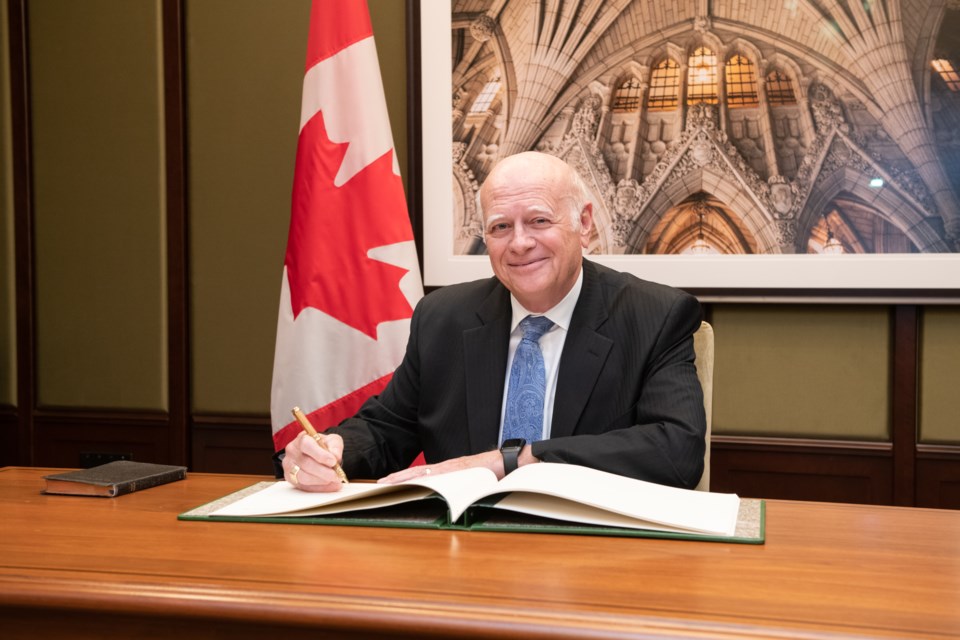The COVID-19 pandemic is a year old, and Newmarket-Aurora MP Tony Van Bynen said that the crisis of the past 12 months revealed inequalities and other social problems that will need to be addressed by the federal and provincial governments as Canada tries to move forward.
"This pandemic has really laid bare the many inequalities we have in this society that had, in many cases, been cloaked by our economic strength, I guess," he said.
"When you look at people in congregate living, vulnerable people and disadvantaged, they are, in many cases, racialized and also are the ones working in long-term care who need to go from facility to facility.
"So I think we need to strengthen our social security net. That's something that I have learned."
After the past year, Van Bynen also agrees with the sentiment that Canada has failed its seniors by having an inadequate long-term care system and that something needs to be done about it.
"We can't just dust off our hands and say 'OK, our job is done.' Our job has just begun, in my view, and we need to focus on things that prevent us from being in this situation again," he said.
Besides improving long-term care, said the local MP, other things that need to be done include repatriating vaccine manufacturing operations back to Canada so the country can be self-sufficient in that regard, as well as adding more surge capacity at hospitals.
On the more technical side, Van Bynen said he has learned as a member of the health committee that every province has its own health-care data system.
"What we really need to do is set up a system that can assimilate all that data from each of the provincial systems, so we can have a national response system that allows us to focus on hot spots and other issues. I've heard this over and over again," he said.
This past year had not been the start to his first term as MP that Van Bynen was expecting. Almost exactly a year ago, he was in Ottawa setting up his new office there before being called to the House of Commons for a vote to allow it to operate with a reduced quorum (minimum number of MPs).
"That was my first urgent vote, and it was called because the government had decided to close down Parliament and operate on a reduced basis. That's what launched the past year and my experience with COVID, " said Van Bynen.
"When I think about the difference between then and now, starting last week, we have been able to vote using apps on our phone, as opposed to standing up in the House. So now we can vote anywhere on an issue on the phone which identifies you using a 3D encrypted photo of you."
"This whole situation has advanced technology a lot. Had anyone heard about Zoom a year ago?"
Technological advances such as these are, perhaps, the silver lining of the pandemic, said Van Bynen. The pandemic's urgent necessity was the mother of invention during the past year, he said, and will be one of the future legacies of the time.
"Sometimes change is brought on by urgent circumstances, so I think that is an important lesson learned," he said.
One thing Van Bynen said he hopes to see happen is a rethink about how much time MPs are required to spend in Ottawa versus their constituencies.
Pre-COVID, he said, MPs could expect to be in the capital for three weeks and then spend one week back home. Now, Van Bynen said he hasn't been to Ottawa since November.
He doesn't expect that to continue once the pandemic is over but would like to see the previous three-to-one split reversed, so MPs spend more time in their ridings and less time in Ottawa.
"In my view, what that would do would be to keep you closer to your constituents and more informed about what is going on. There are a lot of events you wouldn't be able to attend if you were in Ottawa. So I think there is an opportunity to improve the MPs' presence in the community using technology," he said.
Van Bynen said another positive thing he has seen this past year was how the federal and provincial governments largely put partisan differences aside to mount an effective response to COVID-19. He would like to see a more apolitical process continue but already sees partisanship coming back.
"What we need to do is find a non-political emergency response process, so people aren't wagging fingers at each other and focusing on working together," the MP said.
"This is especially important in dealing with long-term care, which is regulated provincially. So we need a way to work together."
"We need to be the empathetic, supportive, caring and socially progressive country that is the foundation that Canada was built on."
Failing to do that, he said, would mean falling into the trap that the United States appears to have found itself in where the COVID-19 response and the rebuilding have become divisive and hyper-partisan issues between the two political parties.



